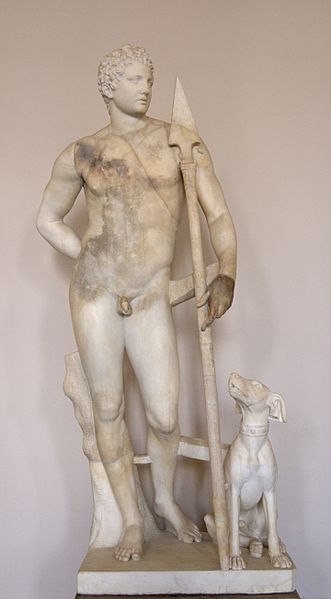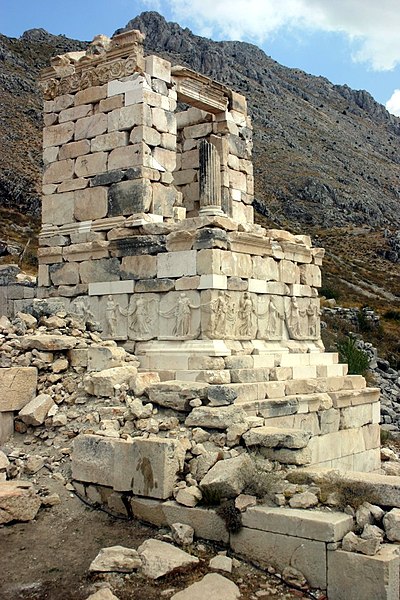In Greek mythology, Meleager was a hero venerated in his temenos at Calydon in Aetolia. He was already famed as the host of the Calydonian boar hunt in the epic tradition that was reworked by Homer. Meleager is also mentioned as one of the Argonauts.
Meleager
Meleager (sitting on a rock, with 2 spears) and Atalanta (standing) reposing after the Calydonian boar-hunt. Antique fresco from Pompeii.
Meleager et Atalanta, after Giulio Romano
Statue of Meleager modeled after Skopas
Hero cults were one of the most distinctive features of ancient Greek religion. In Homeric Greek, "hero" refers to the mortal offspring of a human and a god. By the historical period, however, the word came to mean specifically a dead man, venerated and propitiated at his tomb or at a designated shrine, because his fame during life or his unusual manner of death gave him power to support and protect the living. A hero was more than human but less than a god, and various kinds of minor supernatural figures came to be assimilated to the class of heroes; the distinction between a hero and a god was less than certain, especially in the case of Heracles, the most prominent, but atypical hero.
Ruins of a hero-shrine or heroon at Sagalassos, Turkey
Cult of Oedipus on a Lucanian amphora, ca. 380–70 BC (Louvre, CA 308)
Offerings to a deified hero and another deity, depicted on a Greek marble relief ca. 300 BC







